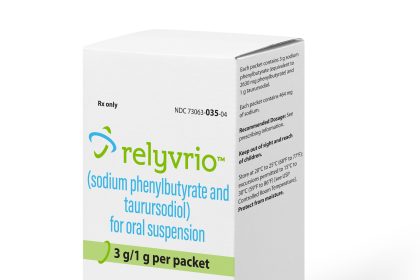Rose Hosts District Roundtable on Prescription Drug Prices

WASHINGTON – Rep. Max Rose hosted a roundtable for seniors in Brooklyn, N.Y. on Saturday to bring them up to speed on his proposal to lower prescription drug prices.
Rose met with members of AARP Bay Ridge Chapter 3630 to talk about his support of the Lower Drug Costs Now Act, which would lower prescription drug prices through direct negotiation, and now includes Rose’s More Help for Seniors Act of 2019, which would use savings from negotiations to lower Medicare Part D costs for low-income seniors.
The combined legislation:
· Ends the blanket ban on Medicare negotiating directly with the drug companies, and creates powerful new tools to force drug companies to the table to agree to real price reductions, while ensuring seniors never lose access to the prescriptions they need;
· Makes the lower drug prices negotiated by Medicare available to Americans with private insurance, not just Medicare beneficiaries;
· Stops drug companies ripping off Americans while charging other countries less for the same drugs, limiting the maximum price for any negotiated drug to be in line with the average price in countries like ours, where drug companies charge less for the same drugs—and admit they still make a profit;
· Creates a new, $2,000 out-of-pocket limit on prescription drug costs for Medicare beneficiaries, and reverses years of unfair price hikes above inflation across thousands of drugs in Medicare;
· Lowers costs for low-income seniors by using savings to the Medicare Part D program to raise the income limits for eligibility under the Medicare Part D low-income subsidy program, which would help low-income seniors and individuals with disabilities afford needed medications by lowering copays and premiums for Medicare Part D.
· Reinvests in innovation and the search for new cures and treatments, using some of the savings from lowering the unjustified drug prices that are bankrolling Big Pharma’s stock-buybacks to reinvest billions of dollars in the search for new breakthrough treatments and cures at the National Institutes of Health.
Rose, a former non-profit healthcare executive said, “It’s time to change the law to let Medicare negotiate drug prices, and put those savings back in our seniors’ pockets. I appreciated having the opportunity to hear directly from those who have been hit hardest by skyrocketing prescription drug costs and look forward to getting this done.”
The non-partisan Congressional Budget Office found that drug negotiations alone from this transformative legislation will save taxpayers $345 billion in Medicare Part D spending over 2023-2029.
But the Pharmaceutical Research and Manufacturers of America, an industry association, says the sweeping Lower Drug Costs Now Act will do more harm than good.
In a statement following the introduction of the plan PhRMA president and CEO Stephen Ubl said the House plan “would end the current market-based system that has made the United States the global leader in developing innovative, lifesaving treatments and cures.”
He went on to say the Act would fundamentally restructure how patients access medicines and upend the successful Medicare Part D program that 40 million seniors rely on without any guarantee that savings would be used to lower costs at the pharmacy counter.
“We do not need to blow up the current system to make medicines more affordable,” Ubl said. “Instead, policymakers should pursue practical policy solutions such as sharing negotiated savings with patients at the pharmacy counter, lowering coinsurance in Medicare Part D, increasing transparency on patients’ costs, promoting value-based contracts, among other improvements to the system. These solutions are better alternatives to the far-reaching proposals in Speaker Pelosi’s plan.”























